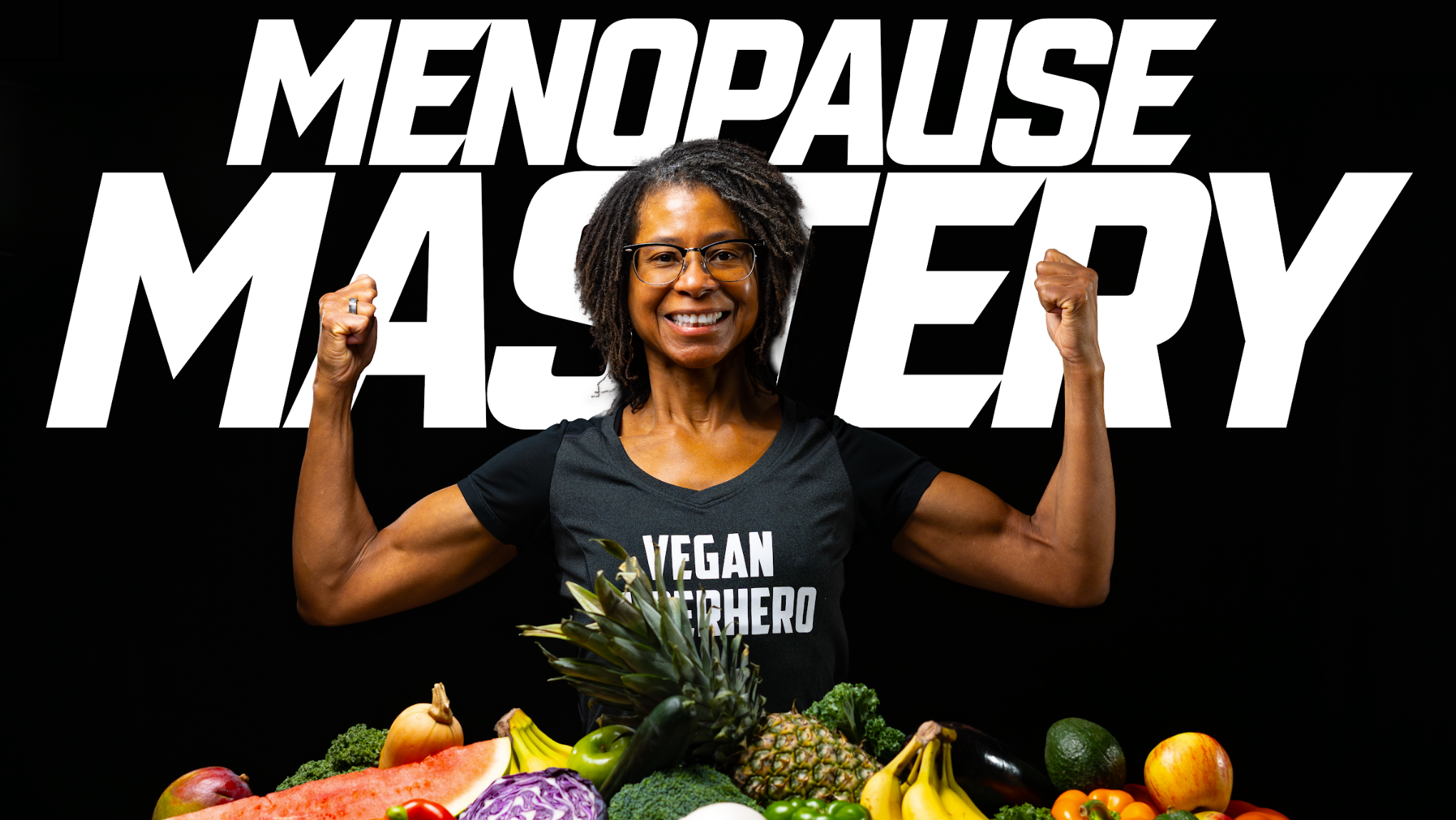This delicious 4-day vegan meal prep is specifically designed to combat the six most common challenges of menopause: hot flashes, muscle loss, mood swings, fatigue, inflammation, and an increased risk of osteoporosis.
Grab our free menopause meal prep guide - nutrition breakdown and grocery list included!
Let us know what you think! Leave your comments on YouTube.
What Makes This Meal Prep Plan unique?
Menopause can be a challenging phase, but with the right nutrition, you can alleviate many of its symptoms. This meal plan, designed by our registered dietitian Taylor, comes in at just over 1,800 calories per day. It boasts 100 grams of plant protein, ensuring you meet all your nutritional needs without supplementation, including protein powder.
Breakfast: Creamy Green Maca Smoothies
Start your day with a nutrient-packed smoothie. Frozen spinach and bananas are key ingredients that last longer and provide essential nutrients. Add frozen pineapple chunks, sun butter for vitamin E, hemp seeds, ground flaxseed, and maca powder – a root vegetable native to Peru that may help alleviate menopause symptoms like mood swings, depression, and anxiety. Blend with soy milk, which contains isoflavones known to reduce hot flashes.
Lunch: Lentil Harvest Salad
For lunch, prepare a Lentil Harvest Salad packed with protein and vitamins. Cook lentils and Brussels sprouts, rich in vitamin K and estrogen-metabolizing compounds. Add sweet potatoes for an extra boost of vitamins and minerals. Top it off with a Sriracha tahini dressing for a flavorful kick. This meal helps with muscle maintenance, mood stabilization, and inflammation reduction.
Dinner: Tofu Kimchi Rice Bowls
Evenings call for a comforting and nutritious Tofu Kimchi Rice Bowl. Tofu provides another serving of isoflavone-rich soy, promoting bone health. Kimchi, a probiotic food, supports gut health and hormone regulation. Bok choy adds a crunch and a dose of vitamins. This meal offers a balanced mix of protein, vitamins, and probiotics to keep you feeling your best.
Snacks: Blackberry Chia Seed Pudding
For snacks, indulge in Blackberry Chia Seed Pudding. Chia seeds are a fantastic source of plant-based omega-3 fatty acids, known to reduce inflammation and improve brain health. Blend blackberries, maple syrup, vanilla soy milk, and chia seeds for a refreshing and nutritious treat.
Nutritional Breakdown
We aimed for 100 grams of plant protein per day and met every target for essential amino acids. Higher plant protein intake, combined with resistance training, is vital for maintaining muscle mass, muscle strength, and bone strength in post-menopausal women. This meal plan is also rich in calcium, vitamin K, magnesium, and omega-3 fatty acids – all crucial for bone health and reducing menopause symptoms.
Key Nutrients
Calcium: Found in soy milk, tofu, bok choy, and chia seeds.
Vitamin K: Abundant in Brussels sprouts.
Magnesium: Present in hemp seeds, lentils, and chia seeds.
Omega-3 Fatty Acids: From chia seeds, ground flaxseed, and hemp seeds.
Fiber: 55 grams per day, supporting gut health and hormone regulation.
Take Action
To further support your journey through menopause, grab our menopause meal prep guide and learn more about our Menopause Mastery program run by Dr. Daphne Bascom.
Interested in Plant-Based Nutrition?
Join the waitlist today for our new FREE plant-based nutrition course.
Want To Get Your Custom Nutrition Needs?
Get your plant-based nutrition targets in 2 minutes with our FREE Nutrition Calculator!
Never miss a new video!
Was this helpful? Sign up to get more science-based vegan nutrition information right in your inbox!






